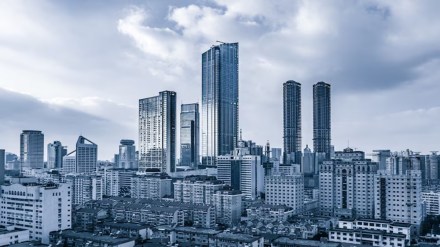– By Hiren Chheda
The commercial real estate market helmed by economic progress, rapid urbanisation, and evolving business needs is displaying all the signals of delivering substantial growth in 2025. The commercial real estate sector, projected to hit USD 106.05 billion by 2029 with a CAGR of 21.10% (Mordor Intelligence), is set for a transformational phase starting next year. Key factors like new infrastructure, supportive government policies, and improved business opportunities are going to drive this expansion, cementing Mumbai Metropolitan Region’s (MMR) position as a lucrative real estate destination.
Infrastructure: The Backbone of Growth
The 34 mega infrastructure projects announced in MMR, particularly Thane and its nearby areas are set to benefit from a remarkable Rs 4 lakh crore government investment. Work will start taking shape in 2025 and over the next decade its beneficial impact on commercial real estate will be seen. In Mumbai, transformative projects such as the Eastern Freeway extension to Thane, the Thane-Borivali Twin Tunnel, and the metro rail along Ghodbunder Road are set to enhance connectivity and accessibility. This will unlock new growth corridors, opening-up areas beyond Mumbai like Thane areas around for extensive commercial and residential developments. Thane’s connectivity to the upcoming Navi Mumbai International Airport and its upgraded railway station will help shape its growing appeal as a business hub.
Government Policies and Economic Growth
Policies fostering foreign direct investment, regulatory streamlining, and a business-friendly environment are poised to attract increased domestic and international capital into the market. MMR, as a burgeoning economic hub with a thriving job market, is set to see sustained demand for high-quality office spaces and retail outlets, driven by an influx of businesses and talent. This momentum positions the coming year as a pivotal period for growth and investment in commercial real estate.
Emerging Micro Markets and their Potential
Within the MMR, micro-markets like Thane have begun to take shape as a key destination in the commercial real estate sector. These markets are offering an alternative to the expensive real estate that traditionally sought areas like BKC, Nariman Point or Andheri-Powai corridor have to offer. With improved connectivity, rapid urbanization, and the establishment of IT hubs, the city boundaries are being extended and commercial developments in Thane are turning into magnets for multinational corporations and start-ups. The IT Park in Thane for instance, is expected to generate significant employment, further fuelling the demand for office spaces and housing. The simultaneous rise of mixed-use developments in these regions is bridging the gap between workspaces and residential areas, offering a more holistic lifestyle to the working class.
The Data Center Boom, Sustainability and Innovation
The growing digital economy is pushing the demand for data centers across the country. According to Savills India, the real estate demand for data centers is expected to increase by 15-18 million sq. ft. by 2025. Sustainability is emerging as a cornerstone of India’s commercial real estate future. Developers are focusing on creating green, energy-efficient buildings equipped with AI-powered solutions and smart technologies. These innovations cater to the demands of environmentally conscious businesses while reducing operational costs. Moreover, integrated townships that blend work, leisure, and living spaces are becoming increasingly popular, particularly in urban centers, as businesses and individuals seek comprehensive lifestyle solutions.
Paving the Way for 2025 and Beyond
India’s inclusion in the JP Morgan GBI-EM index has infused foreign investor confidence, strengthened forex reserves and signalled a stable investment climate. This development is set to lower borrowing costs and improve liquidity, giving a significant boost to the commercial real estate sector. Mumbai and the extended MMR region, with expanding infrastructure and business growth, are positioned as pivotal beneficiaries of this momentum. As 2025 approaches, advancements in technology, policy reforms, and sustainable urban planning are redefining the landscape, presenting unparalleled opportunities for developers, investors, and businesses to shape the future of urban India.
(Hiren Chheda is the Managing Director of Ekatva Group.)
(Disclaimer: Views expressed are personal and do not reflect the official position or policy of Financial Express Online. Reproducing this content without permission is prohibited.)
